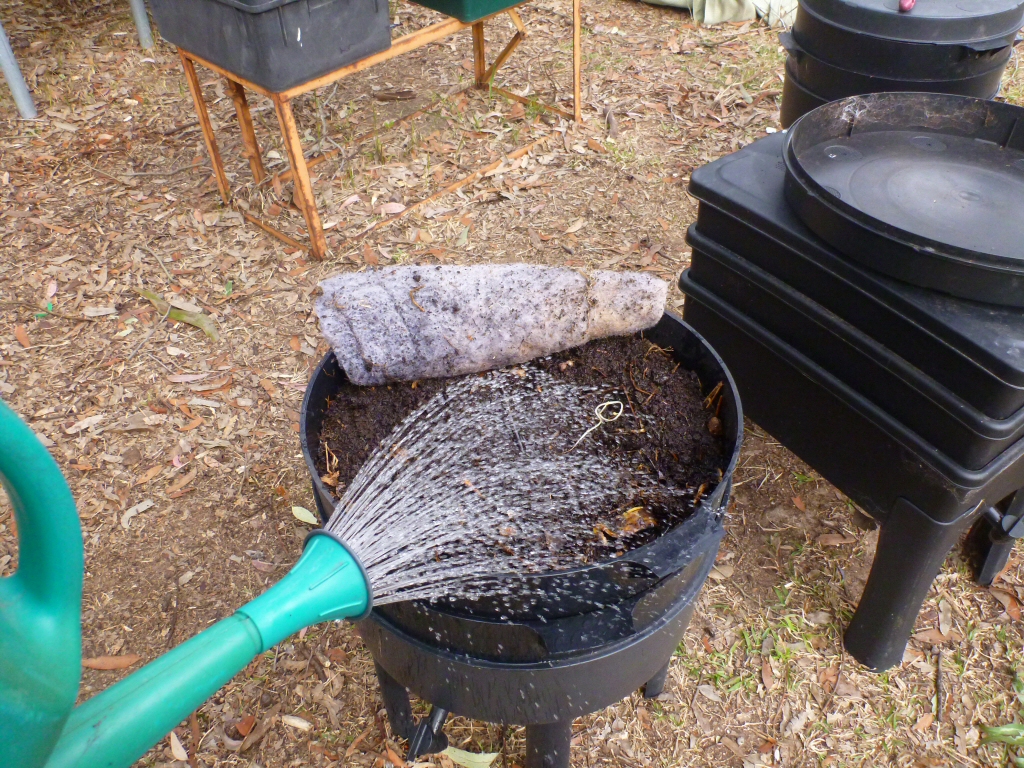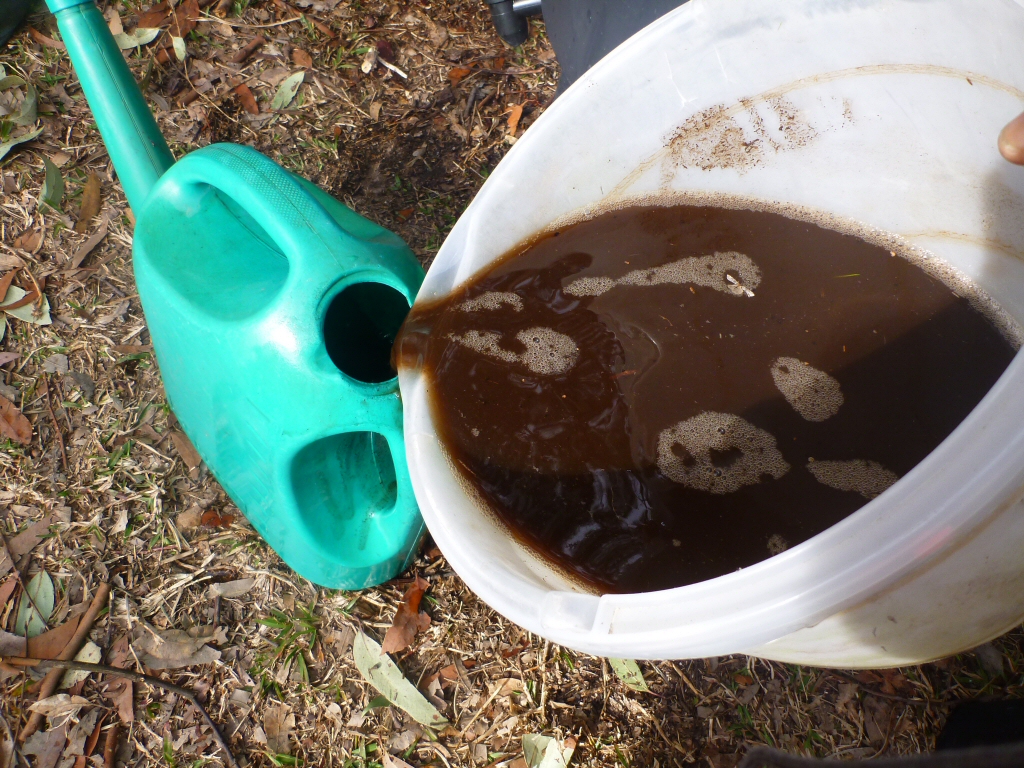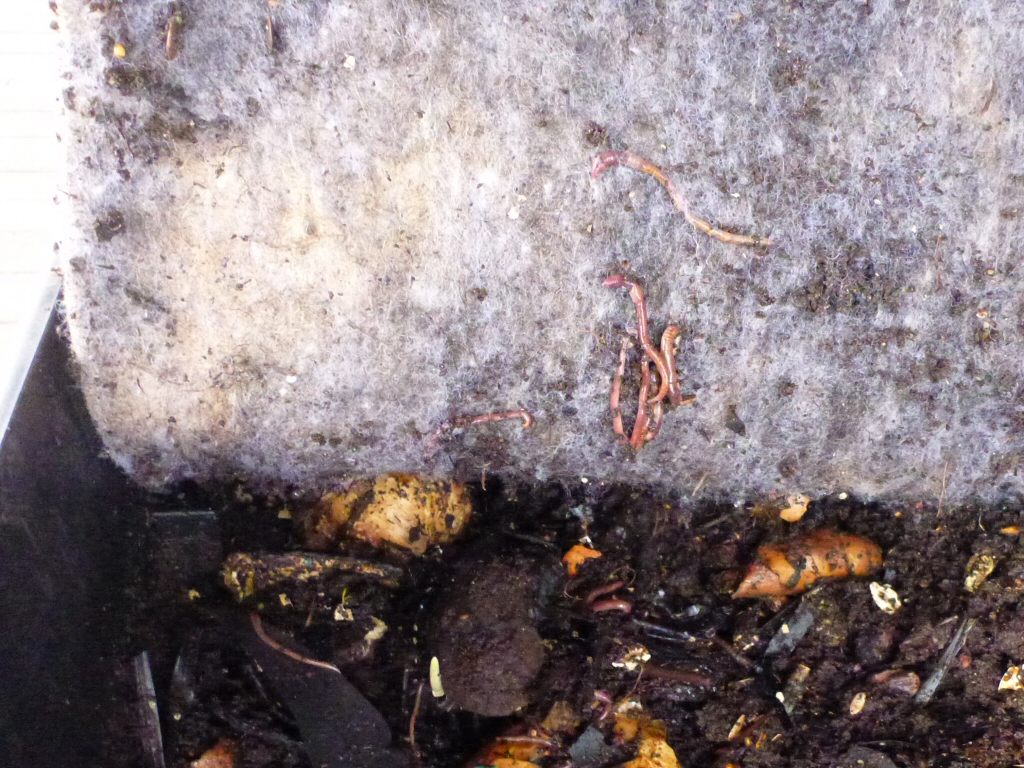One of the keys to a successful worm farm lies in maintaining the correct balance of water and air in the system. Worms are very sensitive to drying out as their skin is designed to be constantly moist. Too little moisture will kill earthworms but they also need to be breathe, so too much moisture will cause them to drown. You may have seen worms on the surface of your soil or lawn during extremely wet periods when the soil gets is constantly waterlogged. As well as being bad for the worms too much moisture in a worm farm can lead to some awful smells.
How do you tell if the worm farm is too dry and how do I fix it?
Take a handful of the compost in your worm farm and give it a good squeeze (remove any worms before you squeeze!). You should be able to just extract a few drops of water. If you can’t, then your worm farm may be too dry. Another telltale sign is a reduction in the number of worms in your farm. To fix the problem, pour at least 10litres of water from a watering can through the worm farm straight away and repeat this whenever you notice things drying out or if you are going through a heat wave. The liquid that flows off makes a fantastic additive for your vegetable garden, potted plants, native plants……anywhere in the garden really!
How do you tell if the worm farm is too wet and how do I fix it?
The first sign that your worm farm is too wet is a disgusting smell when you take the lid off. This can sometimes happen if you are adding wet materials such as kitchen scraps at too fast a rate for the number of worms that are there at that time. The bad smell comes because a whole host of microbes that can live with little or no oxygen invade the worm farm and give off smelly by-products such as methane and rotten egg gas (hydrogen suphide) Also, perform the squeeze test on a handful of the compost in the worm farm and if lots of water can be extracted then you are on your way to the worms drowning or trying to escape from the bins.
Soldier fly larvae or white maggots!!
Another indicator that things are too wet is the appearance of segmented white maggots that are the larvae of the soldier fly and they prefer very sloppy conditions. The solution if things get too wet is to add some coarse material such as hay, straw or shredded newspaper or cardboard and mix it with the sodden compost and in no time the worms will be back doing their work again. The easiest way to mix coarse materials through the wet castings is to use a small garden fork and very carefully aerate the mix.
Check out my article on soldier fly larvae to learn more about these interesting characters >>>>
Worm farms can get too wet if the drain hole or tap at the bottom clogs up with castings or dead worms. Check if this is the problem. It can be fixed by poking a piece of thin wire through the hole, or by removing the tap altogether if it keeps blocking up.
Worm Blankets
Worm blankets are great to use to maintain an even moisture in your worm farm, and the right material will still let air into the worm bed, which is vital for the happiness and health of your worms. You can use any non-synthetic material such as an old towel or woolen blanket, or you can use one of the commercially available natural worm blankets which are sized to fit most worm farms and have a great open weave to allow the best air flow. My worms will congregate underneath their blanket, which means they are eating the contents of my compost bucket soon after I add them.
For lots of information on home growing vegies, worm farming and lots more, check out the book
“Grow Your Own”….buy it here>>>>




